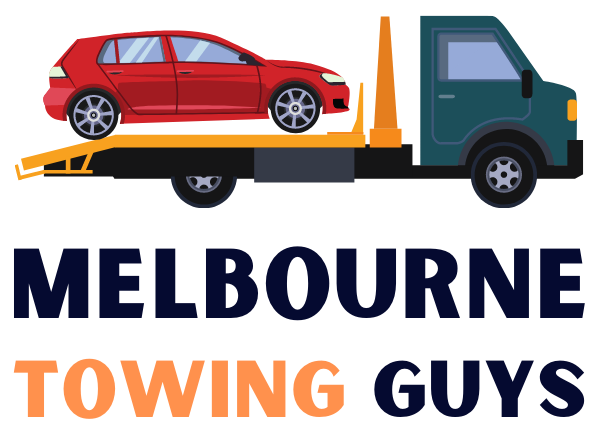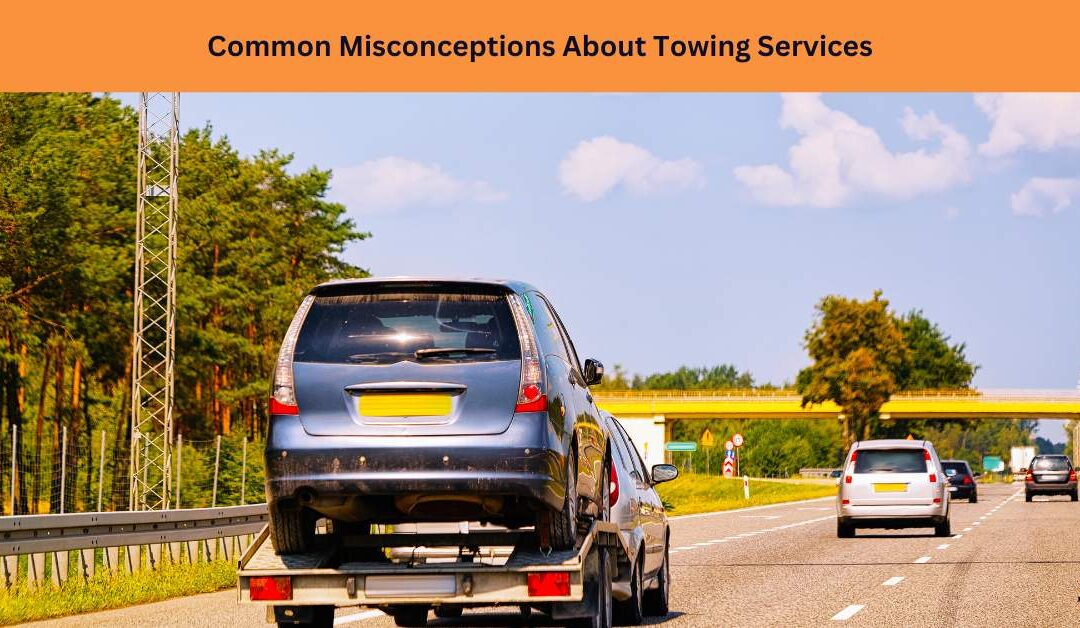Towing services often come with a range of misconceptions that can influence drivers’ perceptions of the industry. While some may see tow trucks as a costly last resort or have doubts about their necessity, the reality is that towing services are essential for road safety, convenience, and reliable assistance in emergencies. Let’s debunk some of the most common misconceptions about towing services and clarify their actual roles and benefits.
1. “Towing Services Are Too Expensive”
Many drivers avoid calling a towing service because they assume it will be too costly. However, the price of towing services often depends on various factors, and many are more affordable than expected.
Range of Services: Towing companies offer services beyond simple tows, including battery jump-starts, tire changes, and lockout assistance. These services are often cheaper than full towing, making them a cost-effective solution for minor roadside problems.
Insurance Coverage: Some insurance policies cover towing services, or partial costs, reducing the expense for the vehicle owner. Roadside assistance plans can also include towing, offering substantial savings.
Value for Safety and Convenience: Professional towing services are equipped to handle various situations safely and quickly, saving you from potential damages or hazards that could result from attempting to handle things on your own.
2. “Tow Trucks Only Deal with Accidents”
Many people think towing services only respond to accident scenes, but this is far from the truth. Towing companies provide comprehensive support for various roadside issues, not just crashes.
Roadside Assistance: Towing companies assist with dead batteries, fuel delivery, flat tires, and lockouts, offering quick solutions for these common problems.
Vehicle Relocation: Towing services also help with moving disabled or non-functional vehicles from one location to another, such as when someone is moving a classic car or a vehicle that isn’t roadworthy.
Long-Distance Transport: Many towing companies offer long-distance towing to transport vehicles safely across cities or states, providing a solution for car owners who need their vehicles moved securely.
3. “All Tow Trucks Are the Same”
It’s a common misconception that all tow trucks are identical, but different situations call for different types of tow trucks.
Flatbed Tow Trucks: These trucks are ideal for vehicles that need all wheels off the ground, such as all-wheel-drive (AWD) or luxury cars. They provide a safe way to transport vehicles without contact with the road.
Wheel-Lift and Hook-and-Chain Tow Trucks: Wheel-lift trucks lift one end of the vehicle, typically used for shorter distances or in scenarios where flatbeds may not be necessary.
Heavy-Duty Tow Trucks: These are designed for larger vehicles, like buses, RVs, or trucks, as they have the strength and equipment to handle bigger loads. Understanding that different trucks serve specific purposes helps clarify the versatility of towing services.
4. “I Don’t Need a Tow; I Can Fix It Myself”
While DIY solutions might work for minor issues, many roadside problems require professional attention. Attempting to handle things without proper tools or knowledge can lead to further complications.
Safety Concerns: Many roadside repairs, like tire changes or jump-starts, can be dangerous on busy roads, especially without the proper equipment to alert other drivers. Towing professionals are trained to operate in these conditions and have the tools to do so safely.
Risk of Vehicle Damage: Improper handling of a breakdown can damage your vehicle. For instance, jump-starting a car incorrectly can harm the electrical system, and towing without proper equipment can cause transmission issues. Towing companies minimize these risks.
Complex Problems: Some issues may seem simple but have underlying complexities that only professionals can address, such as transmission malfunctions or battery problems that require specialized tools.
5. “Tow Trucks Are Always Slow to Respond”
Another common misconception is that tow trucks are unreliable and take too long to respond. In reality, towing services often prioritize quick response times and are strategically positioned to cover service areas efficiently.
24/7 Availability: Many towing companies operate around the clock, with dispatchers and drivers ready to respond to emergencies day or night.
GPS Tracking and Dispatching: Modern towing companies use GPS technology to locate the closest tow truck, reducing response times and ensuring help arrives quickly, especially during emergencies.
Local Coverage: In urban areas, tow trucks are often stationed across different regions to cover more ground, so drivers in need can receive help promptly.
6. “Towing Damages the Vehicle”
Some believe that towing can harm their vehicle, either by scratching the paint, damaging the undercarriage, or straining the transmission. However, when done correctly by professionals, towing is a safe and damage-free solution.
Flatbed Towing for Sensitive Vehicles: Vehicles that need special care, such as luxury cars or all-wheel-drive vehicles, can be transported via flatbed tow trucks, which lift the entire car onto a platform.
Specialized Equipment: Tow trucks are equipped with straps, chains, and other tools designed to secure vehicles without causing scratches or dents. Tow operators are trained to load and secure vehicles without affecting their structural integrity.
Experienced Tow Operators: Professional towing companies train their drivers to handle vehicles carefully, ensuring that the towing process does not cause any damage, provided the vehicle is towed according to guidelines.
7. “I Don’t Need a Tow Service; My Insurance Will Handle It”
While it’s true that some insurance companies offer roadside assistance, they typically partner with local towing companies to handle the actual tow.
Insurance Coverage Isn’t Always Immediate: Even with insurance, there can be a delay in getting roadside assistance, as insurance companies may need to coordinate with a local towing provider. Contacting a towing company directly can often result in faster service.
Limited Coverage: Some insurance policies have mileage limits for towing or may not cover certain types of towing needs. Independent towing services can offer a broader range of solutions that may be more suitable for the situation.
Expertise and Equipment: Directly contacting a towing company ensures you have access to specialized services, such as heavy-duty towing or long-distance transport, which might not be fully covered by your insurance.
8. “Tow Trucks Only Work in the City”
There’s a misconception that towing services only operate in urban areas, but towing companies typically cover both rural and urban regions, especially those located near highways.
Broad Service Areas: Many towing companies operate within large service areas to assist drivers regardless of location. In rural areas, companies may cover extended distances to help drivers in need.
Highway and Remote Assistance: Towing services often provide support on highways and remote roads where help is harder to find. Tow trucks are dispatched to ensure drivers can receive help even when far from a major city.
Partnerships and Networks: Some towing companies work with other providers to expand their coverage area, ensuring drivers in rural and less populated areas can access reliable towing services.
9. “Towing Isn’t Necessary with Modern Cars”
It’s easy to assume that newer, technologically advanced cars are less likely to need towing services. However, even new vehicles can encounter unexpected issues.
Electrical Failures: Modern vehicles have complex electrical systems, and issues like dead batteries, software malfunctions, or sensor problems can require towing.
Tire-Related Problems: Flat tires, damaged rims, and other wheel-related issues still occur in modern vehicles, and not all cars come with spare tires or tire repair kits.
Unexpected Mechanical Problems: While newer cars are often reliable, breakdowns still happen due to overheating, transmission failure, or fuel system issues, making towing services essential regardless of a car’s age or technology.
10. “Any Truck Can Tow Any Vehicle”
One of the most dangerous misconceptions is that any tow truck can tow any type of vehicle. Different vehicles require different towing methods and equipment.
Vehicle-Specific Equipment: Heavy-duty vehicles like trucks and RVs need different towing equipment than standard sedans. EVs, for instance, often require flatbed towing to avoid drivetrain damage.
Knowledge of Vehicle Requirements: Tow operators need training to handle various vehicle types, such as all-wheel-drive or electric vehicles, which have specific towing guidelines. Attempting to tow without the right equipment can lead to costly repairs and safety risks.
Matching Tow Trucks to Loads: Weight and size are critical factors in towing. Using an improperly rated tow truck for a heavy load can be unsafe and potentially damage both the tow truck and the vehicle.
Final Thoughts
Professional towing services are often misunderstood, with misconceptions that can lead to hesitation or incorrect assumptions. In reality, towing companies provide valuable, safe, and convenient solutions that can benefit drivers in many different situations. Understanding the full scope of what towing services offer and dispelling these myths can help you feel more confident in reaching out when you need assistance.
If you are in Glen Waverley, Victoria 3150, Australia and looking for a tow truck service or roadside assistance service, this is the best way to visit us.
Melbourne Towing Guys
12 Esperance Rd
Mount Waverley VIC 3149
(03) 7037 7636


Recent Comments